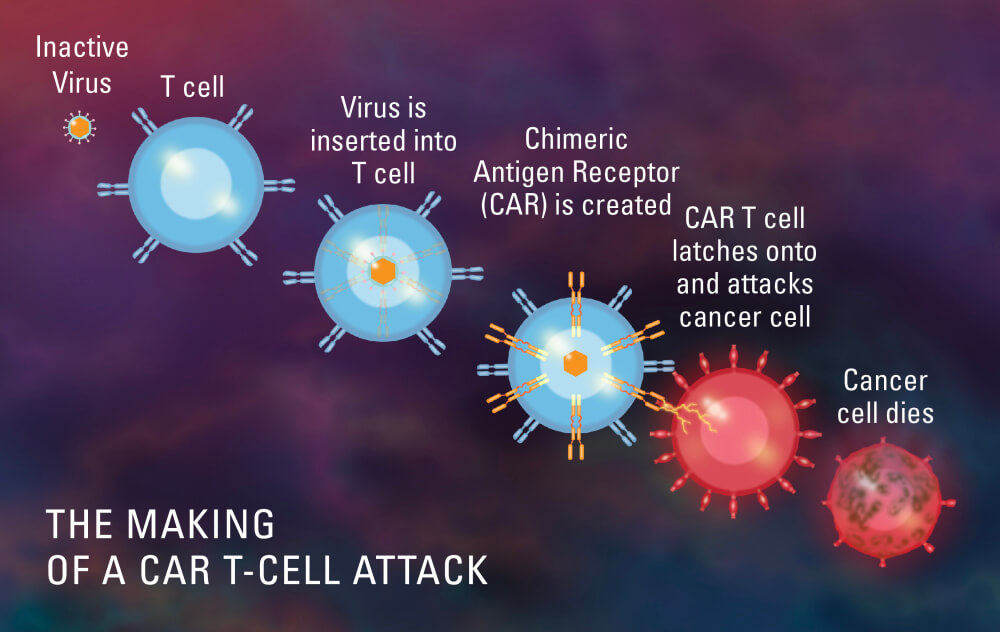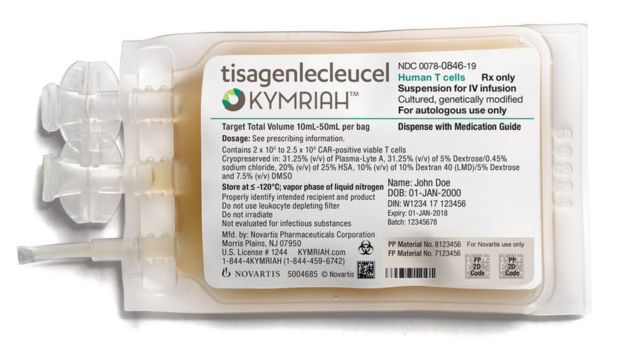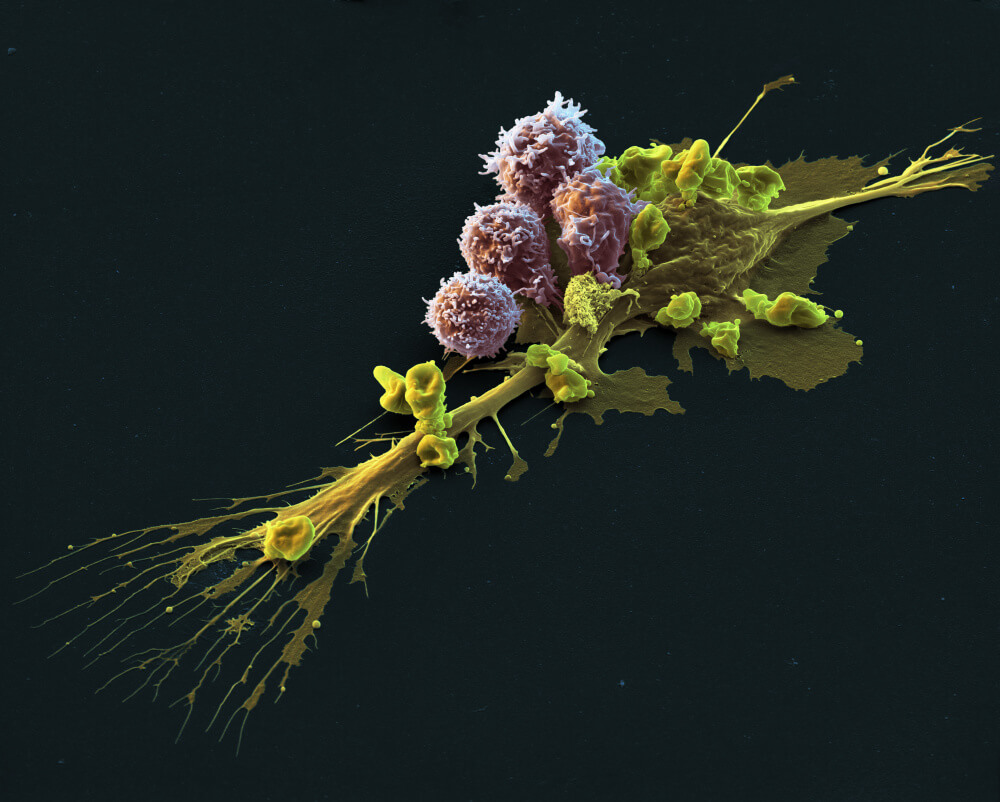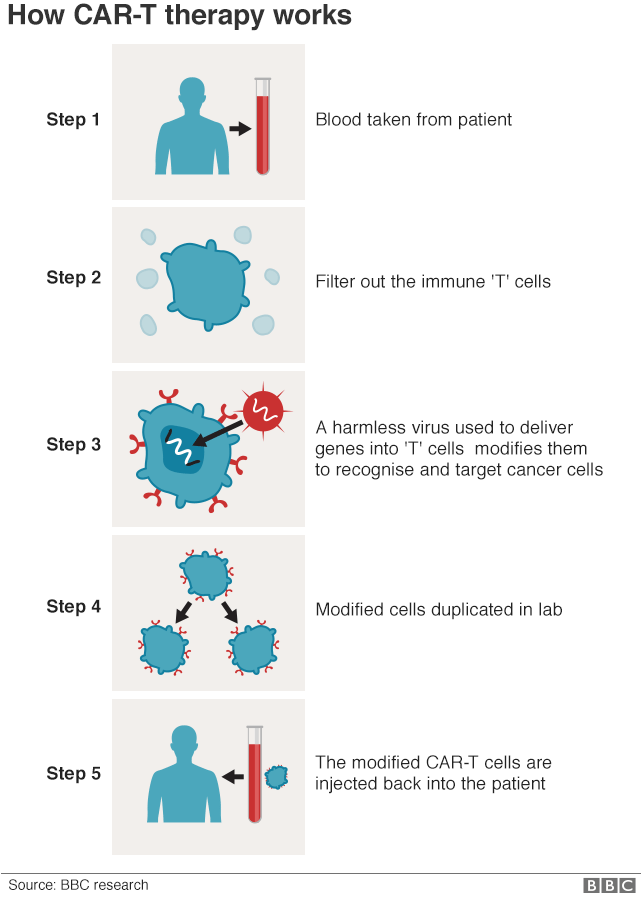Saving Lives, a Costly Enterprise
"We can now save children we couldn't save before. In 2019, in a first-world country like Canada, about 90 percent of those children will be cured. But ten percent won't, and since ALL [acute lymphoblastic leukemia] is the most common of children's cancers, even ten percent of children who relapse represents a substantial population of patients."
"We want to believe, although I think it's probably too early to say for sure, that those children [treated with CAR-T cell therapy] are cured."
Dr. Jim Whitlock, division head, hematology and oncology, Hospital for Sick Children, Toronto

"[While its] scientific ingenuity is marvellous [at potentially hundreds of thousands of dollars per dose, the therapy is also raising] the age-old question; what is the price of a human life?"
"[While it's a one-time infusion], it's not something you give at home and overnight the person has full remission from cancer."
"How much are we willing to pay to survive disease, and how much are governments willing to pay?"
"The ones [cancer drugs and therapies] that were easy to find, we found them. It's going to be harder to discover new therapies."
"[Though CAR-T therapy should be recognized as a] fantastic achievement [it fails some cancers, and both side effects and cost involved are complicating factors]. But when your disease is a death sentence, less than perfect solutions are not to be dismissed."
Jonathan Jarry, biological scientist McGill University, Hamilton
 |
| Kymriah is a personalised cancer immunotherapy Novartis |
"[Novartis] worked collaboratively with Cancer Care Ontario on behalf of all provinces to reach a mutually agreed-upon confidential negotiated price where the clinical value [of the drug] Kymriah and health-system sustainability were taken into consideration."
Novartis Canada
A ground-breaking new therapy has been introduced that seems to be successful in destroying the most common childhood cancer. The new therapy extracts T-cells (white blood cells in the bloodstream) to genetically modify the cells which are forwarded to a specific laboratory for DNA to be added to the cells, programming them to target and kill cancer cells expressing a particular protein. The T cells after having undergone genetic engineering then are infused back into the person from whom the cells have been taken. They multiply rapidly, able to survive for years in the donor/recipient body.
Toronto's Hospital for Sick Children and Sainte-Justine hospital in Montreal took part in a global trial whose outcome was published in the New England Journal of Medicine last year. The trial reported an overall rate of 80 percent remission; on a three-month followup in children and adults given a single infusion of tisagenlecleucel (Kymriah's generic name), representing test subjects who would have no hope for a cure other than for the life-saving effects of the CAR-T cell therapy.
There are, as with the potential of complications in any kind of drug infused into a body in hopes of combating the ravages of deadly diseases, a number of issues. A phenomenon identified as cytokine release syndrome "which is basically your immune system freaking out", explains Dr. Jarry, can be launched with the application of the therapy. High fever, nausea, rapid heartbeat, low blood pressure and problems breathing can occur, requiring an ICU admission. To respond to any such reactions, hospitals must stock an anti-body to reverse the effects.
 |
| A ependymoma cell attacked and killed by CAR T cells (red) |
While this vital CAR-T cell therapy is in use in Ontario at both Hospital for Sick Children in Toronto and at Hamilton Health Sciences, both Princess Margaret Cancer Centre and the Ottawa Hospital are planning to be able to provide the therapy in 2020. Ontario became the second province following Quebec to cover the cost of Kymriah for eligible patients, for the chimeric antigen receptor-
T-cell (CAR-T), approved by Health Canada in the treatment of acute lymphoblastic leukemia (ALL) in children, and a form of non-Hodgkins' lymphoma in adults.
The discounted price to be paid by the provinces after negotiations with Novartis "improves the cost effectiveness of Kymriah and helps support cancer0system sustainability", the province of Ontario announced. For some children with ALL, conventional chemotherapy works the first time around. It is for the estimated ten percent of children with ALL that standard intensive chemotherapy fails, that the CAR-T therapy is aimed toward. Chemotherapy's effectiveness comes with side-effects; short- and long-term toxicities; low blood counts requiring transfusions, nausea, vomiting, hair loss, mouth sores: "The list goes on", said Dr. Whitlock.
The drug is expensive, reflecting that newer drugs are more complex than were older ones. And the pharmaceutical companies are not in business to rescue humankind from the end effects of dread diseases shortening human life. They are enterprising business relying on profit to motivate their continued industry in research and development. Dr. Jarry explained that industry must recoup research and development costs of failed drugs "which is most drugs" in light of the fact that with drugs to fight cancer the low-hanging fruit has been picked.

Labels: Cancer, Childhood Leukemia, Drugs, Health, Research

0 Comments:
Post a Comment
<< Home